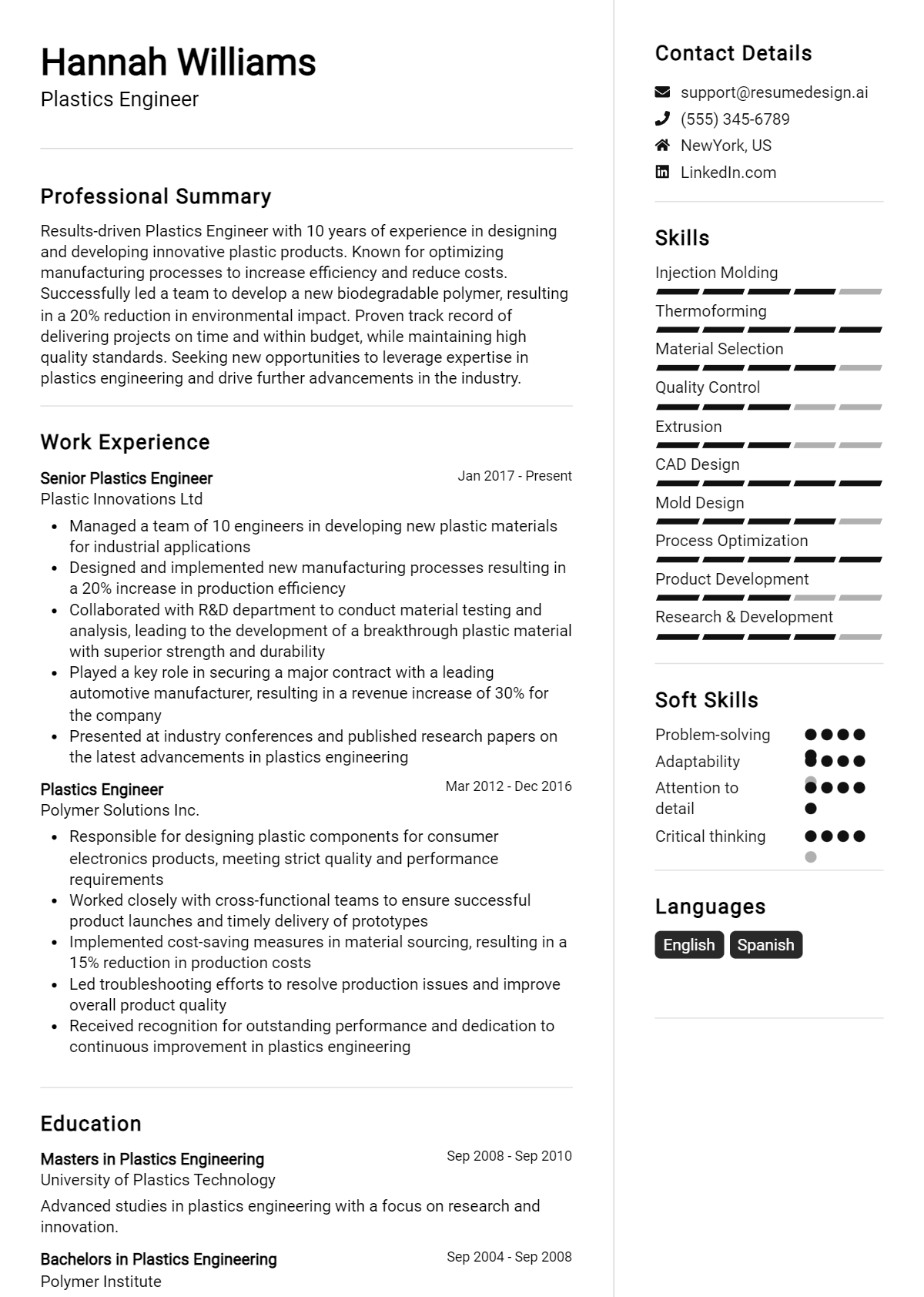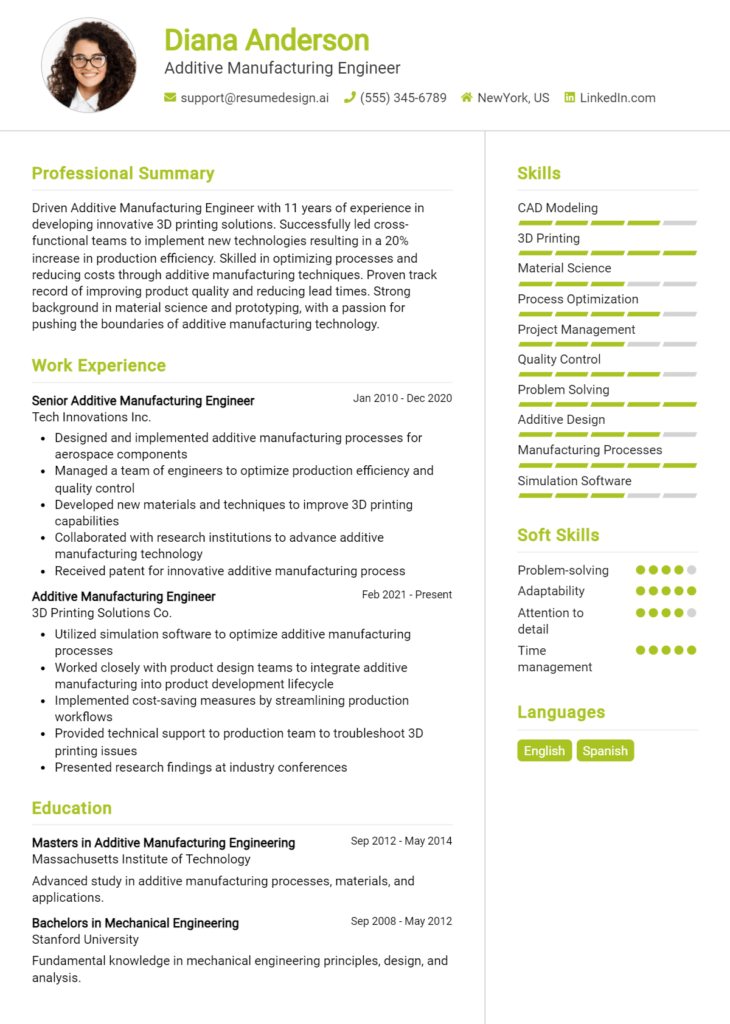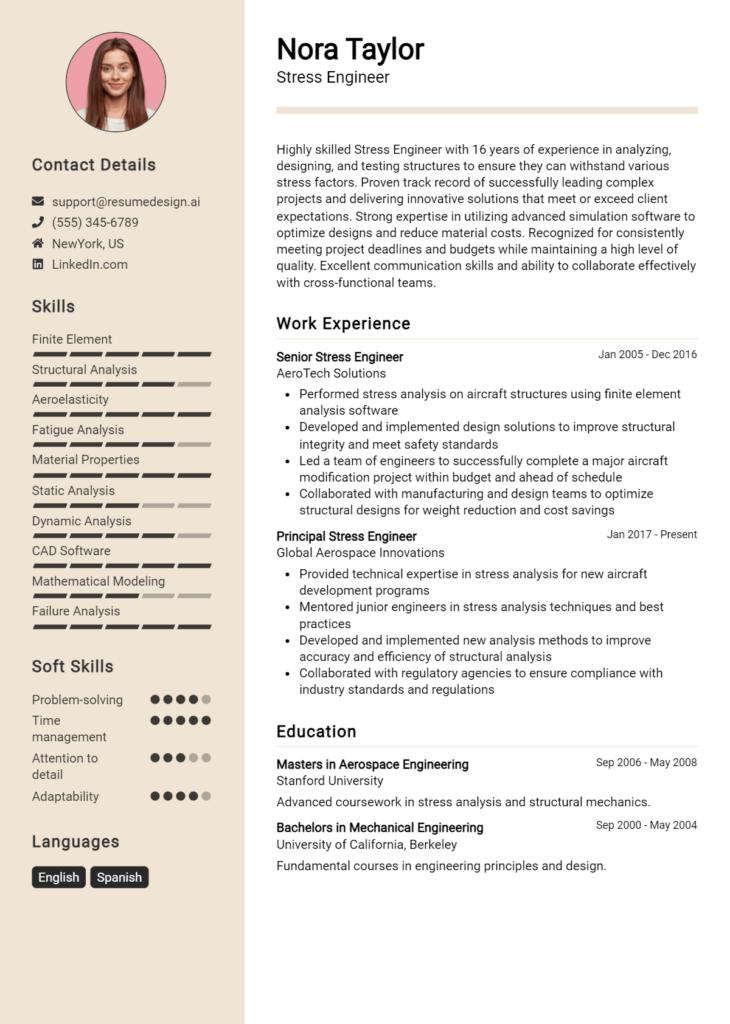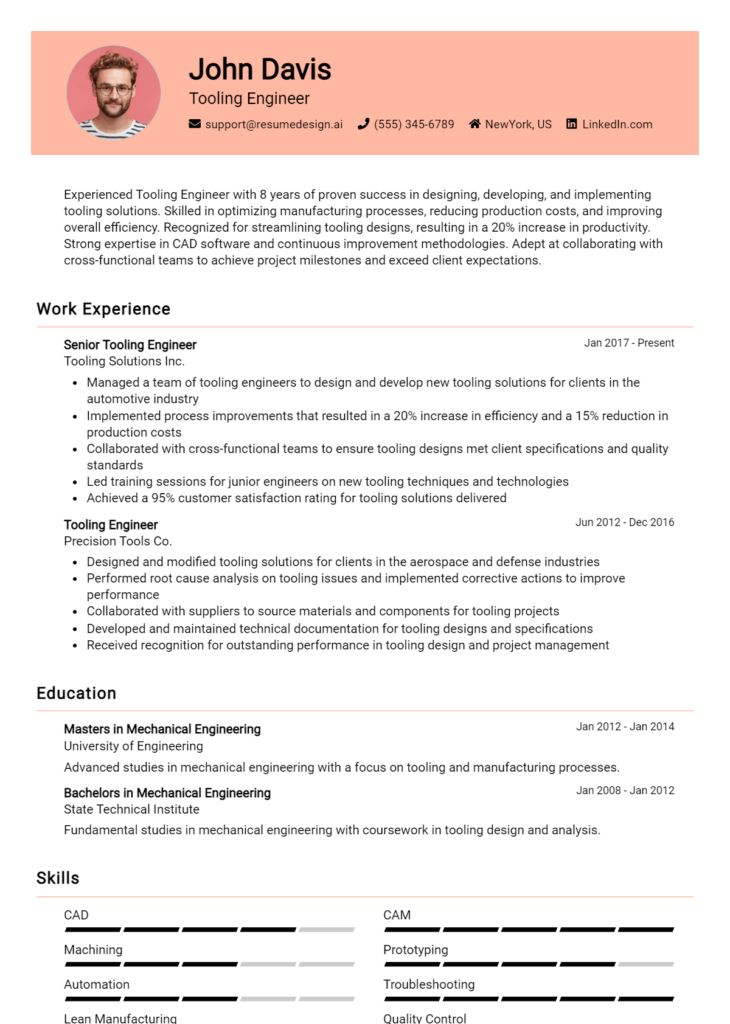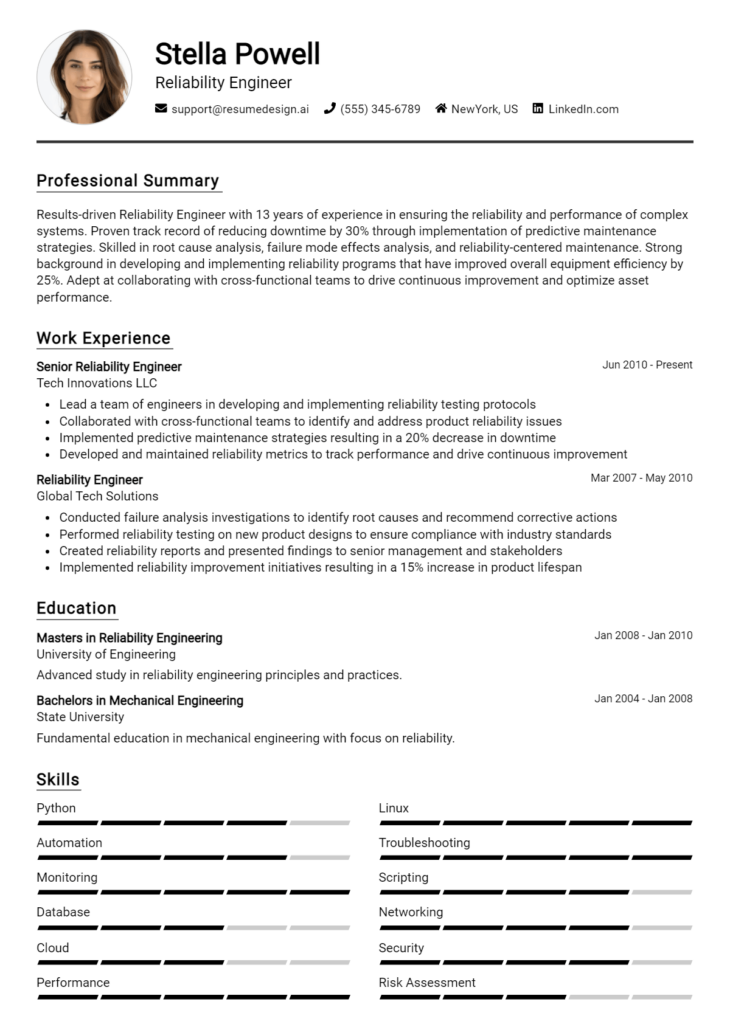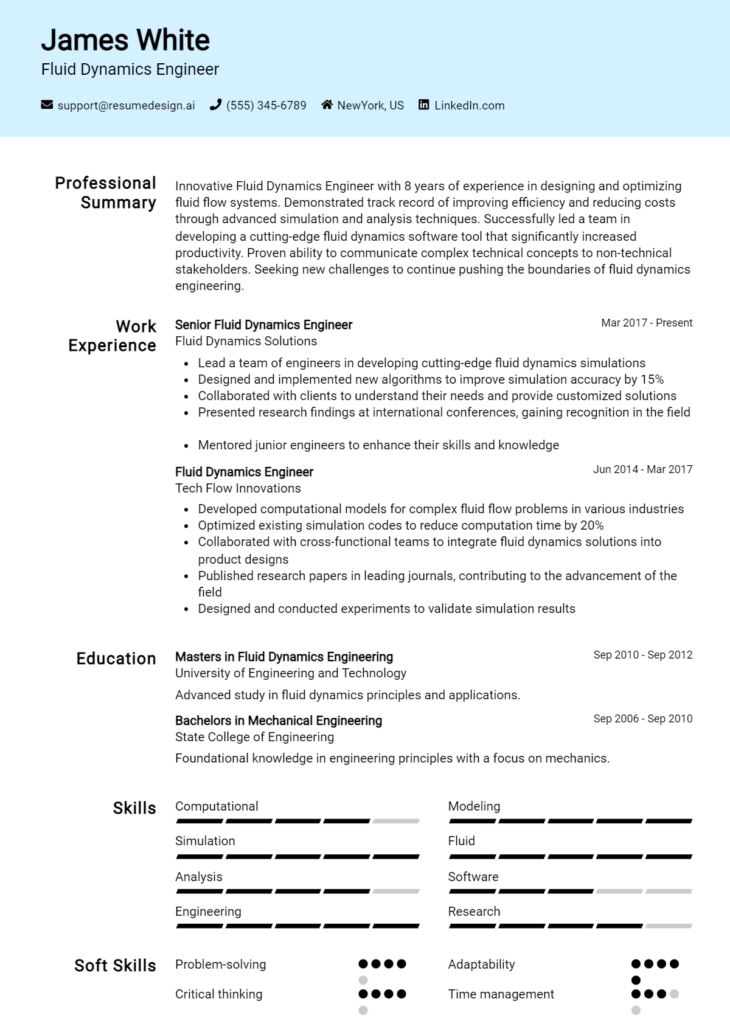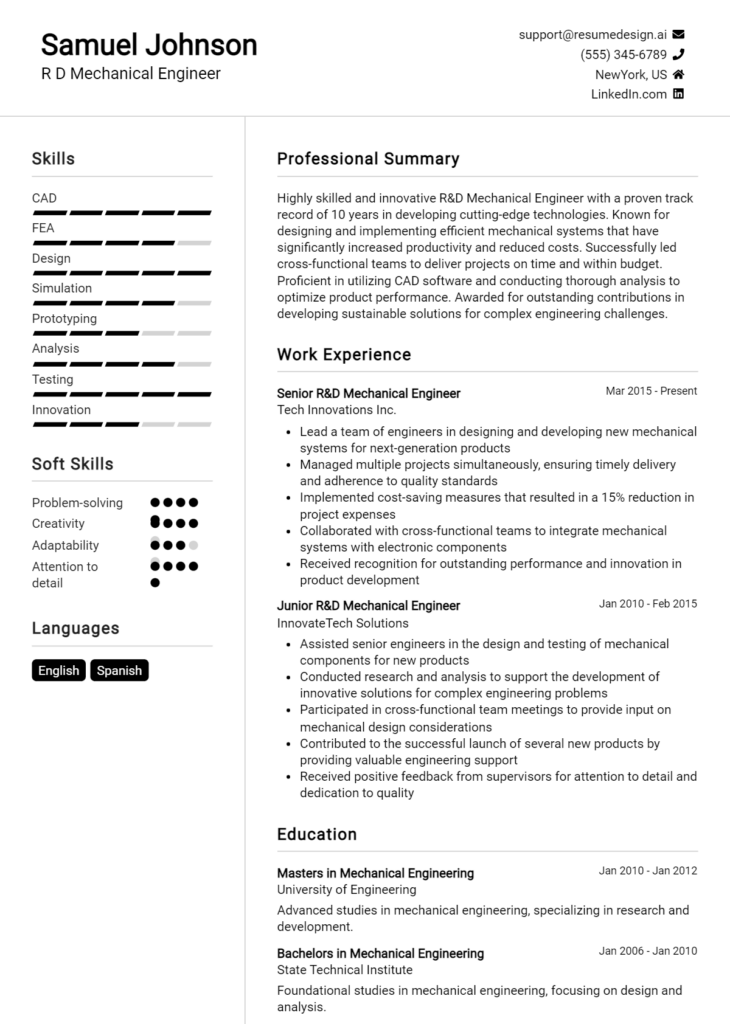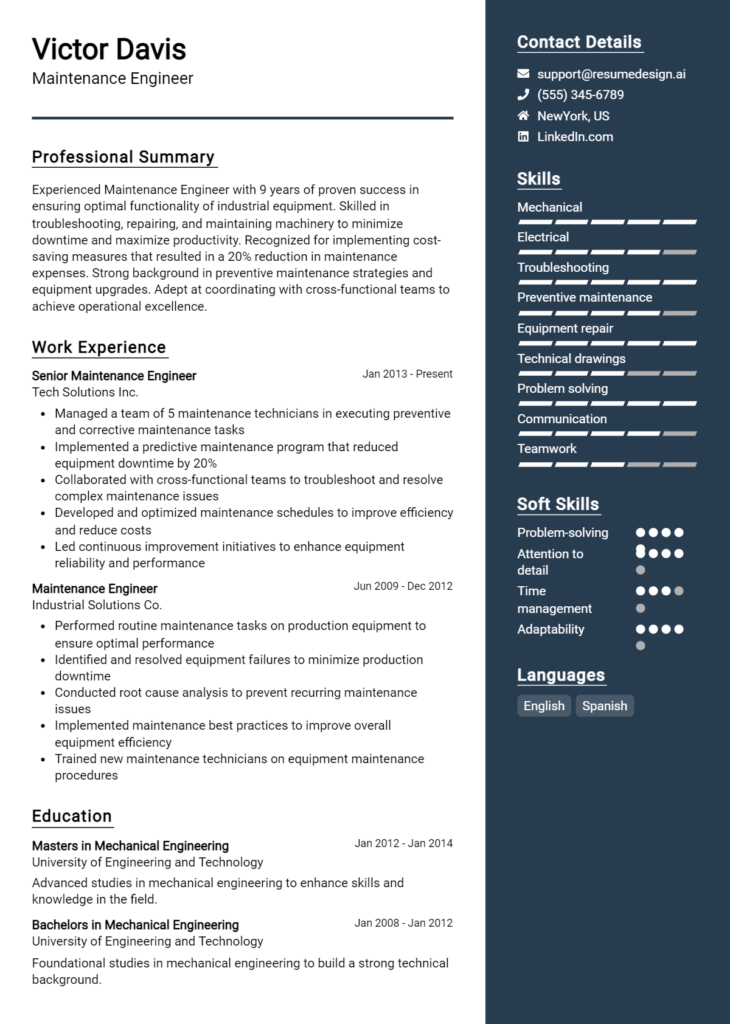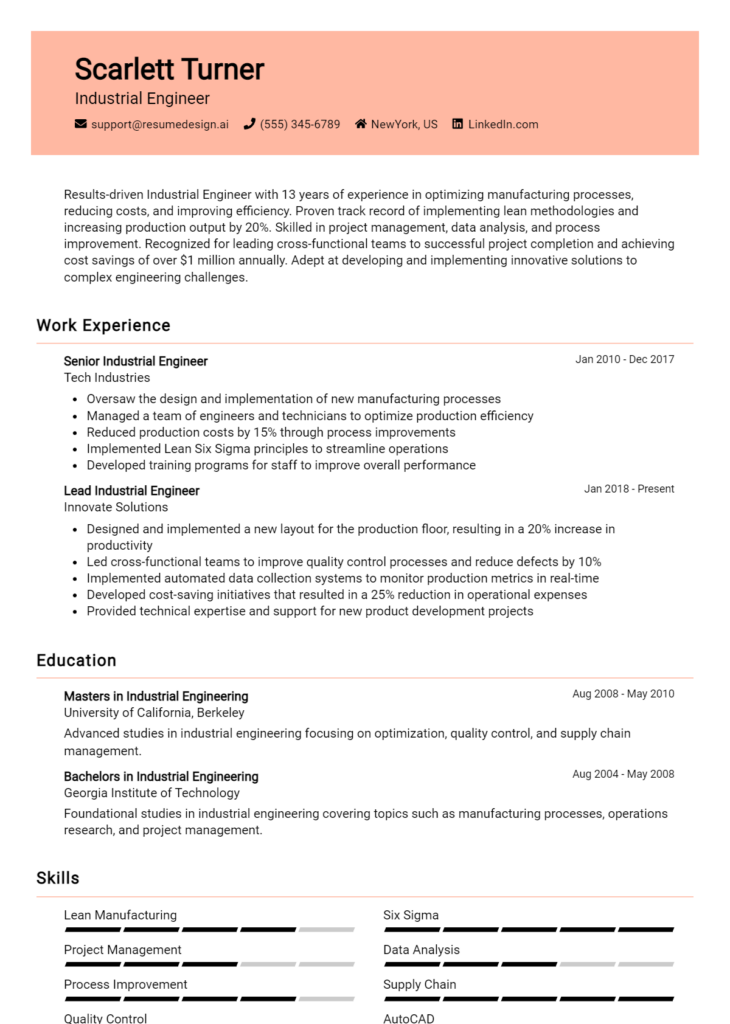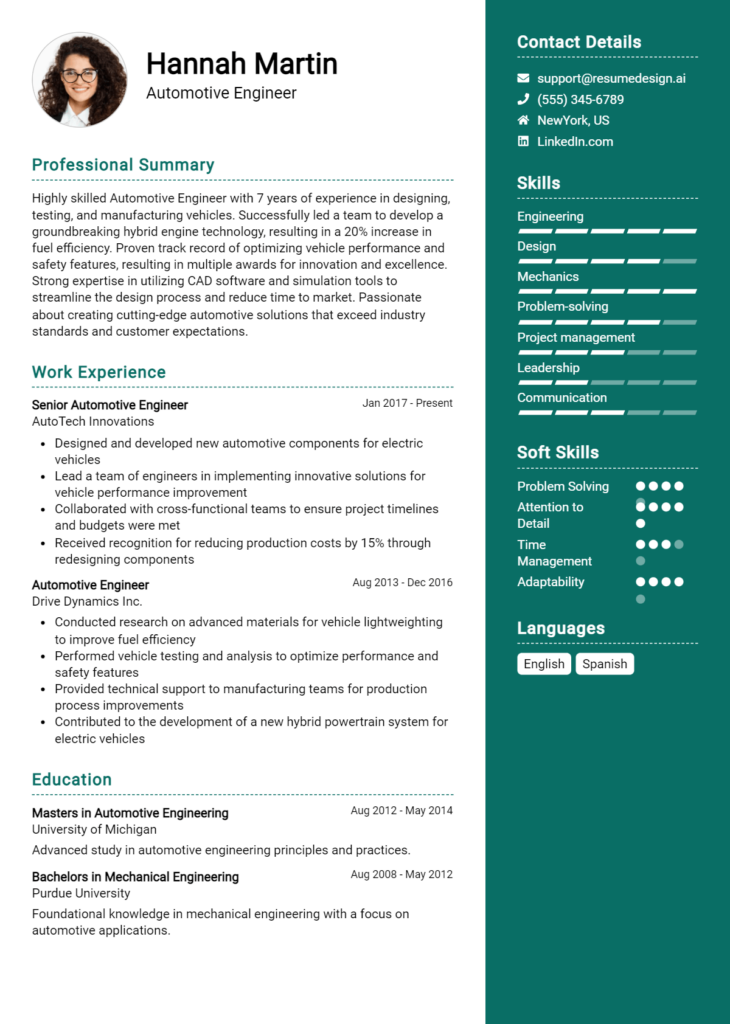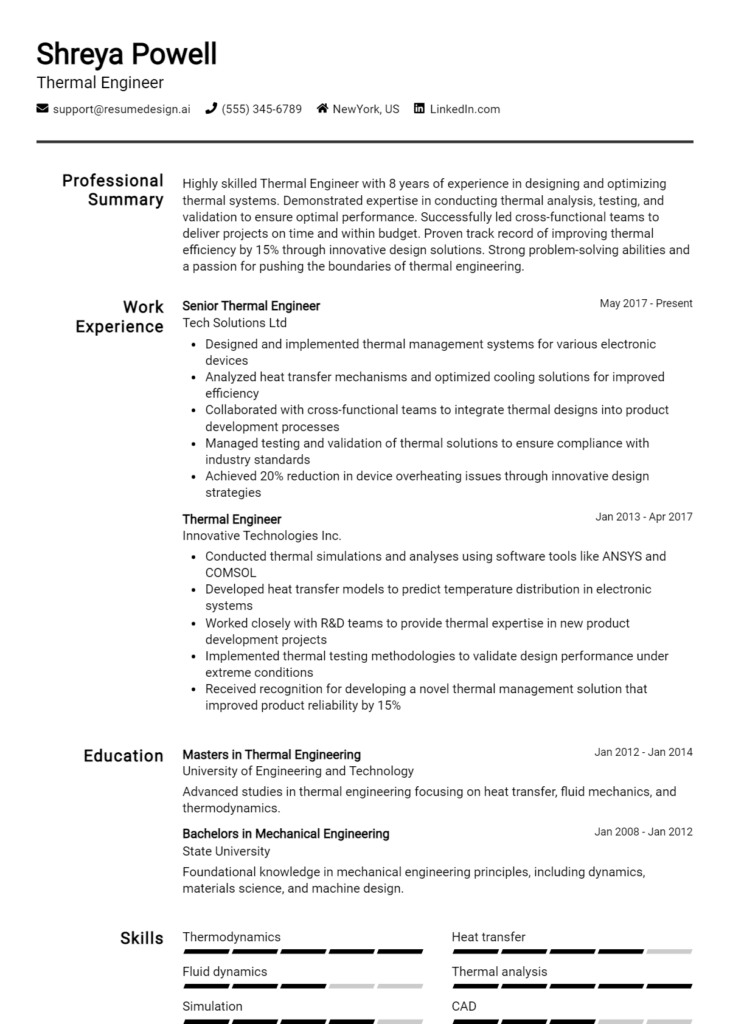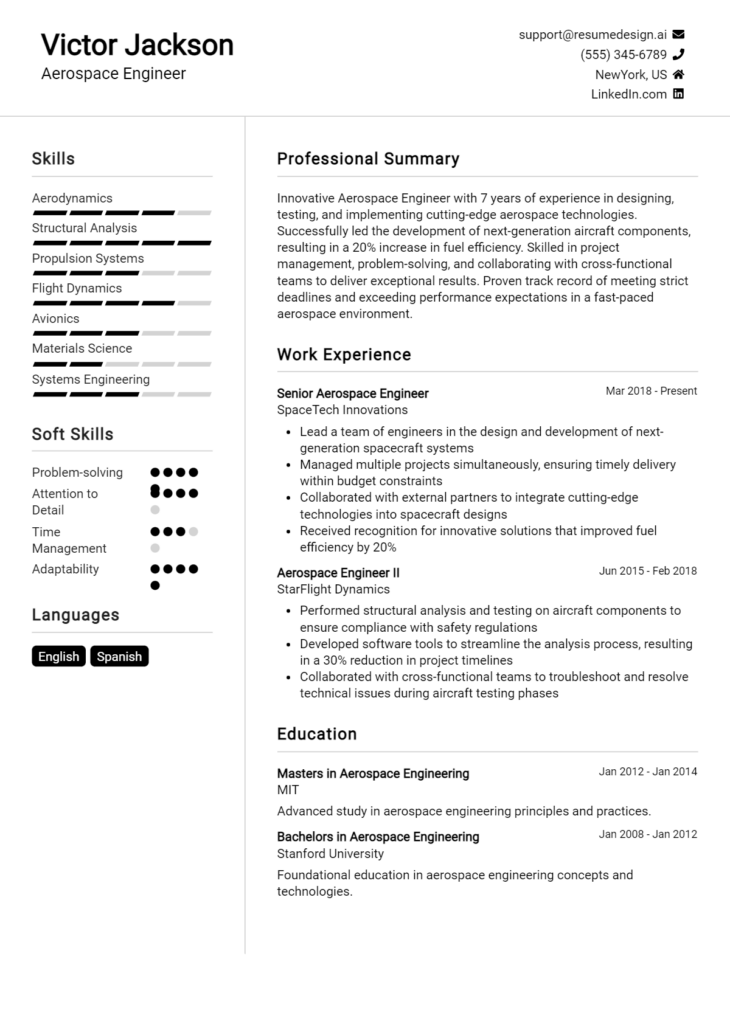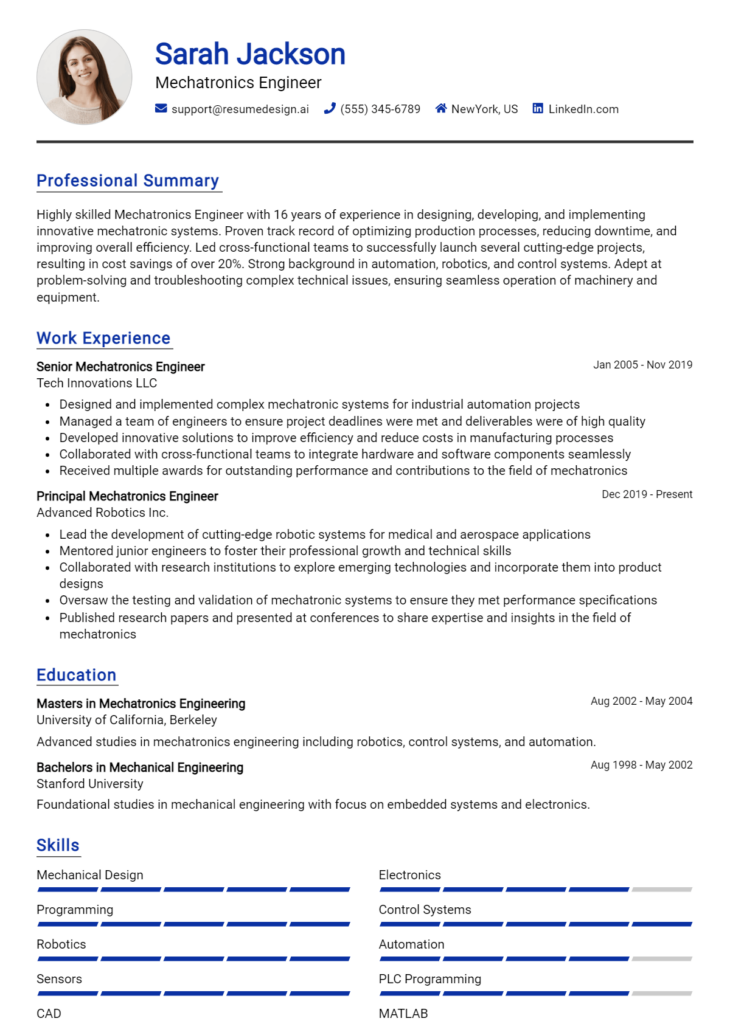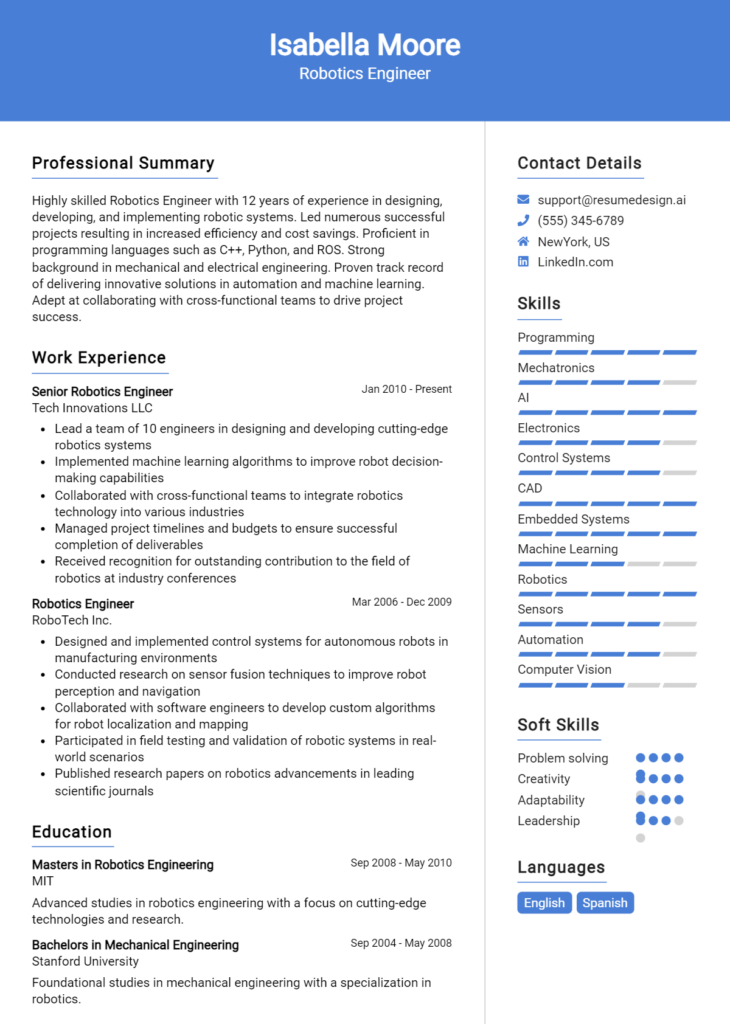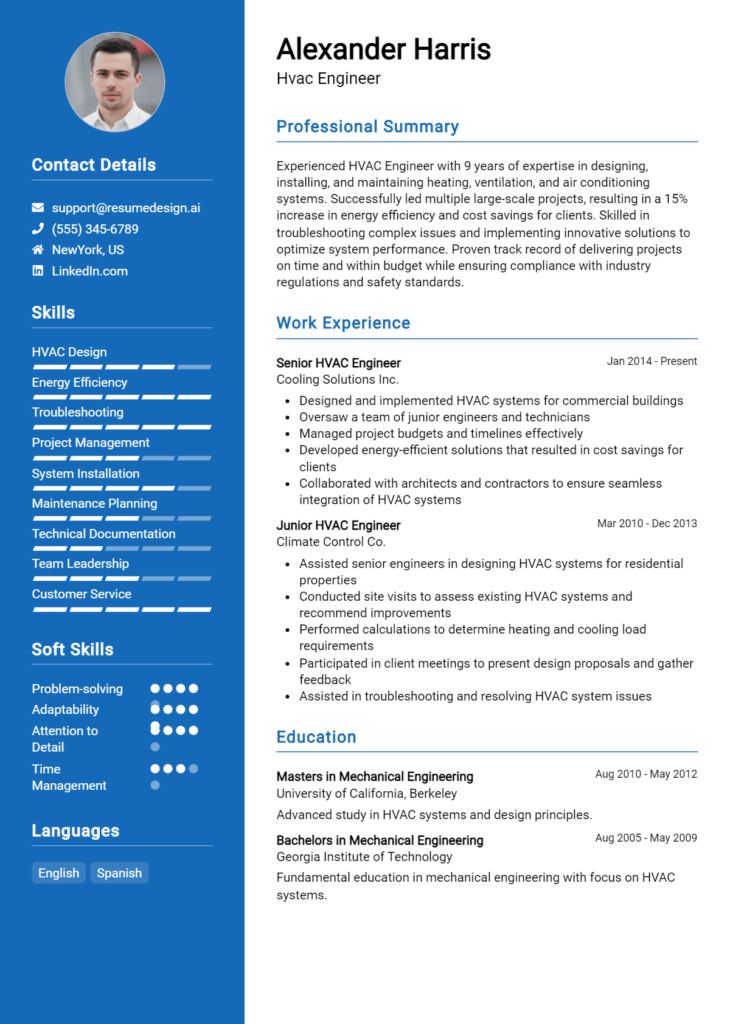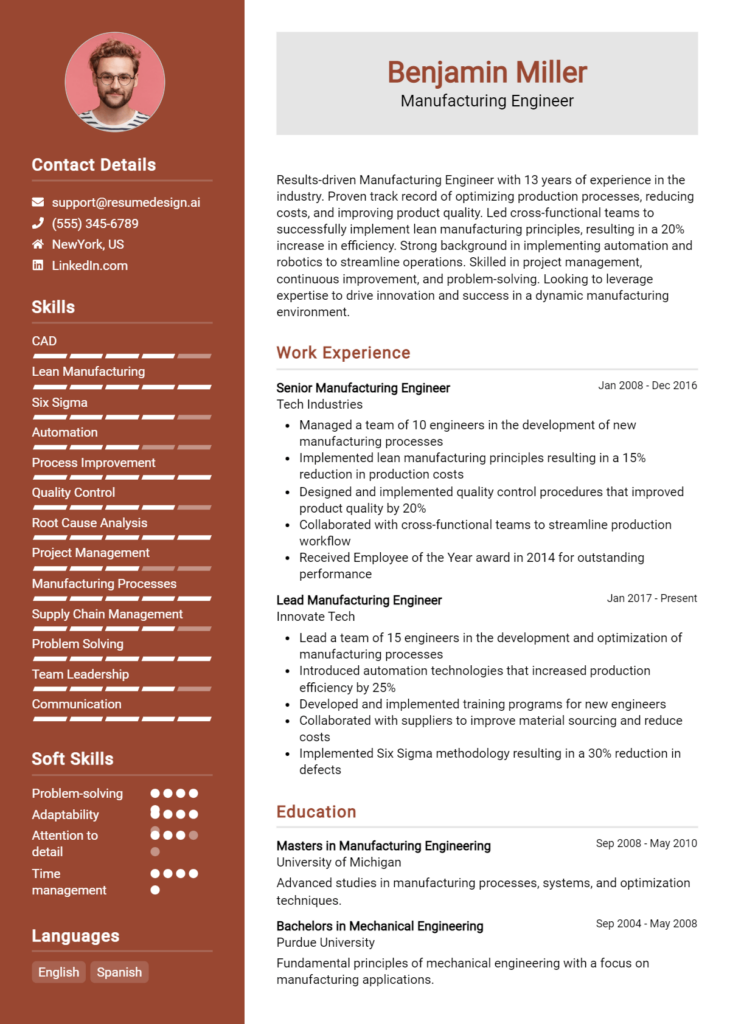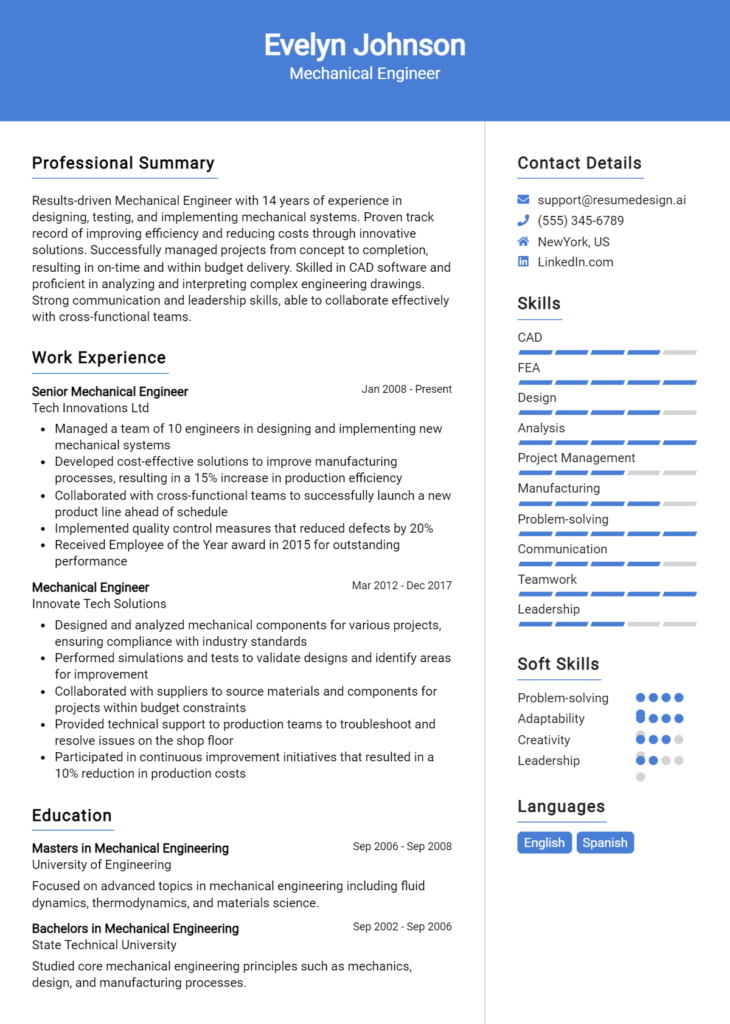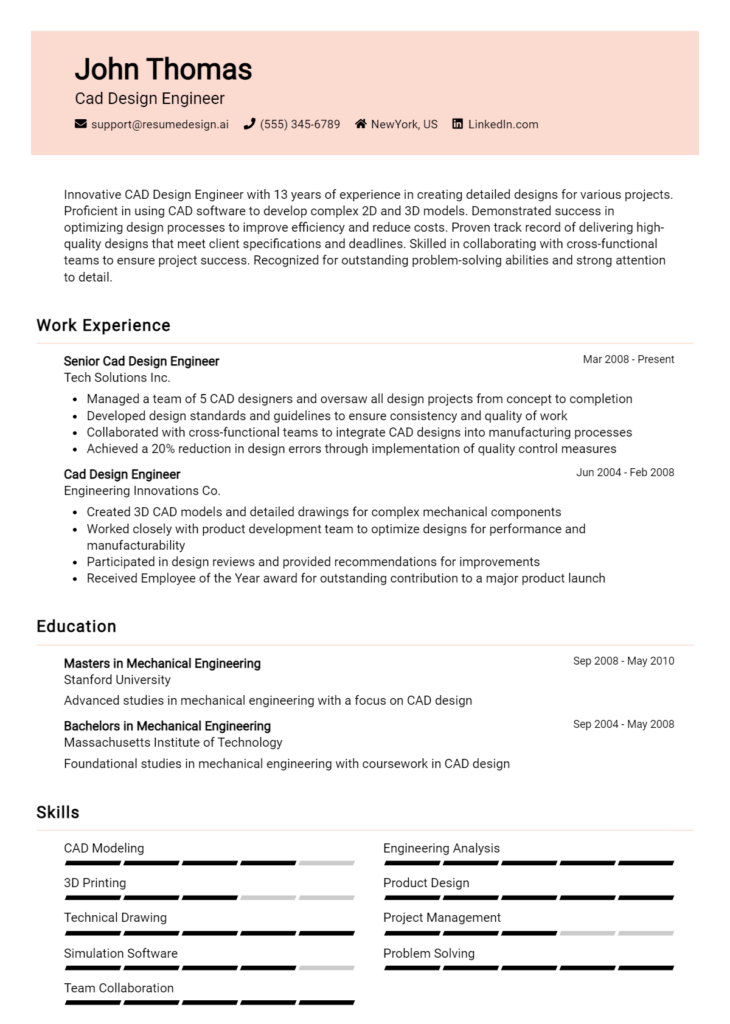Plastics Engineer Core Responsibilities
A Plastics Engineer plays a vital role in the design, development, and production of plastic products, serving as a bridge between design, manufacturing, and quality assurance teams. Key responsibilities include material selection, process optimization, and troubleshooting manufacturing issues. Strong technical skills, operational insight, and problem-solving abilities are essential to ensure efficiency and innovation. These competencies are crucial for achieving organizational objectives, and a well-structured resume can effectively highlight these qualifications, showcasing the engineer's value to potential employers.
Common Responsibilities Listed on Plastics Engineer Resume
- Design and develop plastic products using CAD software.
- Select appropriate materials based on product requirements.
- Optimize manufacturing processes for efficiency and cost-effectiveness.
- Conduct testing and analysis to ensure product quality and compliance.
- Collaborate with cross-functional teams to address design and production challenges.
- Implement process improvements and troubleshoot production issues.
- Prepare technical documentation and reports on project progress.
- Stay updated on industry trends, technologies, and regulations.
- Train and mentor junior engineers and technicians.
- Conduct feasibility studies and cost analyses for new projects.
- Manage project timelines and budgets to meet deadlines.
High-Level Resume Tips for Plastics Engineer Professionals
In today's competitive job market, a well-crafted resume is crucial for Plastics Engineer professionals seeking to make a lasting impression on potential employers. Often serving as the first point of contact, your resume must effectively showcase not only your technical skills but also your achievements in the field. A strong resume communicates your unique value proposition, demonstrating how your background and experience align with the specific needs of the employer. This guide will provide practical and actionable resume tips specifically tailored for Plastics Engineer professionals, helping you create a document that stands out in the hiring process.
Top Resume Tips for Plastics Engineer Professionals
- Tailor your resume for each job application by highlighting the most relevant skills and experiences that align with the job description.
- Begin with a strong summary statement that encapsulates your expertise in plastics engineering and your career goals.
- Showcase your technical skills, including proficiency with materials, design software, and manufacturing processes specific to the plastics industry.
- Quantify your achievements with concrete data, such as percentage improvements in efficiency, cost savings, or production output you have achieved in previous roles.
- Include relevant certifications, such as Six Sigma or PMP, which can enhance your credibility and demonstrate your commitment to professional development.
- Highlight your experience with project management, emphasizing your ability to lead teams and manage timelines effectively.
- Incorporate industry-specific keywords to ensure your resume passes through Applicant Tracking Systems (ATS) used by many employers.
- Demonstrate your problem-solving skills by providing examples of challenges you’ve faced in the plastics field and how you overcame them.
- Keep your resume concise and focused, ideally one page for less experienced professionals and two pages for those with extensive experience.
- Proofread your resume carefully to eliminate any grammatical errors or typos, as attention to detail is critical in engineering roles.
By implementing these tips, Plastics Engineer professionals can significantly enhance their resumes, increasing their chances of landing interviews and ultimately securing a position in the field. A polished and well-structured resume will not only highlight your qualifications but also reflect your professionalism and commitment to the industry.
Why Resume Headlines & Titles are Important for Plastics Engineer
In the competitive field of plastics engineering, a well-crafted resume headline or title serves as a critical first impression for candidates. These succinct phrases not only grab the attention of hiring managers but also provide a quick snapshot of a candidate's key qualifications and expertise. A compelling headline can set the tone for the entire resume, highlighting relevant experience and skills that align with the job being applied for. Therefore, it is essential for plastics engineers to craft a concise and impactful resume title that directly relates to their career objectives and the specific role they seek.
Best Practices for Crafting Resume Headlines for Plastics Engineer
- Keep it concise – Aim for one impactful sentence that summarizes your qualifications.
- Be role-specific – Tailor your headline to reflect the specific position you are applying for.
- Highlight key strengths – Focus on your most relevant skills and experiences that align with the job description.
- Use industry-specific terminology – Incorporate relevant jargon that resonates with hiring managers in the plastics field.
- Avoid vague language – Steer clear of generic phrases that do not convey specific expertise.
- Showcase achievements – If possible, include quantifiable accomplishments that demonstrate your impact in previous roles.
- Make it compelling – Use strong action words to convey confidence and enthusiasm for the role.
- Review and revise – Continuously refine your headline to ensure it remains relevant and effective for each application.
Example Resume Headlines for Plastics Engineer
Strong Resume Headlines
Innovative Plastics Engineer with 10+ Years of Experience in Sustainable Material Development
Results-Driven Plastics Engineer Specializing in Process Optimization and Quality Control
Experienced Plastics Engineer with Proven Track Record in Product Design and Development
Dynamic Plastics Engineer with Expertise in Advanced Manufacturing Techniques
Weak Resume Headlines
Engineer Looking for Job
Experienced Professional in Plastics
Seeking Opportunities in Engineering
The strong headlines are effective because they are specific, showcasing the candidate's unique strengths and relevant experiences in the plastics engineering field. They immediately communicate value to potential employers, making the candidates stand out. In contrast, the weak headlines fail to impress because they are vague and generic, providing little insight into the candidate’s qualifications or what they can bring to the role. This lack of specificity can lead hiring managers to overlook these candidates in favor of those who present themselves more compellingly.
Writing an Exceptional Plastics Engineer Resume Summary
A well-crafted resume summary is a crucial component for a Plastics Engineer seeking to make an impactful first impression. This brief yet powerful introduction serves as a snapshot of the candidate's qualifications, quickly capturing the attention of hiring managers by highlighting key skills, relevant experience, and notable accomplishments. A strong resume summary should be concise, impactful, and tailored specifically to the job being applied for, ensuring that it aligns with the employer's needs and expectations.
Best Practices for Writing a Plastics Engineer Resume Summary
- Quantify achievements: Use numbers and data to demonstrate the impact of your work.
- Focus on relevant skills: Highlight specific skills that are pertinent to the job description.
- Tailor the summary: Customize your summary for each job application to align with the employer's requirements.
- Keep it concise: Aim for 3-5 sentences that deliver your message clearly and effectively.
- Use industry-specific language: Incorporate terminology that resonates with hiring managers in the plastics engineering field.
- Showcase problem-solving abilities: Mention how your skills have contributed to solutions in past roles.
- Include certifications or special training: Highlight any relevant qualifications that set you apart from other candidates.
- Convey passion for the industry: Express your enthusiasm for plastics engineering and innovation in the field.
Example Plastics Engineer Resume Summaries
Strong Resume Summaries
Detail-oriented Plastics Engineer with over 8 years of experience in the automotive sector, specializing in injection molding processes. Successfully led a project that reduced production costs by 20% while increasing output by 15%, resulting in a $200,000 annual savings.
Innovative Plastics Engineer with a proven track record of developing sustainable materials for consumer products. Spearheaded the creation of a biodegradable polymer, which increased market share by 25% within one year, and earned the company a sustainability award.
Results-driven Plastics Engineer with expertise in CAD software and polymer processing techniques. Played a key role in a cross-functional team that launched a new product line, achieving a 30% reduction in time-to-market and exceeding sales projections by 40% in the first quarter.
Weak Resume Summaries
Experienced engineer with a background in plastics. Looking for a new job in the industry.
Plastics Engineer with some experience in manufacturing. I am interested in new opportunities for growth.
The strong resume summaries are effective because they include specific achievements, quantifiable results, and relevant skills that directly relate to the Plastics Engineer role. They convey a clear narrative of the candidate's contributions and successes, making them stand out to hiring managers. In contrast, the weak summaries lack detail and specificity, failing to provide any measurable outcomes or clear relevance to the position, which diminishes their impact and effectiveness in catching the attention of potential employers.
Work Experience Section for Plastics Engineer Resume
The work experience section of a Plastics Engineer resume is critical in demonstrating the candidate's technical skills and competencies in managing teams while delivering high-quality products. This section serves as a platform for showcasing relevant experiences that align with industry standards, illustrating the engineer’s ability to solve complex problems, optimize manufacturing processes, and innovate within the realm of plastics. By quantifying achievements—such as reductions in production time, cost savings, or improvements in product durability—candidates can provide concrete evidence of their impact in previous roles, making a compelling case for their expertise and suitability for prospective employers.
Best Practices for Plastics Engineer Work Experience
- Highlight specific technical skills relevant to plastic manufacturing and design.
- Quantify achievements with metrics, such as percentage improvements or cost reductions.
- Emphasize leadership roles and teamwork experiences in project management.
- Include relevant certifications and training that enhance your qualifications.
- Align your experiences with industry standards and best practices.
- Use action verbs to describe your contributions and responsibilities.
- Customize your work experience section for each job application to reflect the desired qualifications.
- Showcase innovations or process improvements that led to successful project outcomes.
Example Work Experiences for Plastics Engineer
Strong Experiences
- Led a cross-functional team to redesign a plastic component, resulting in a 20% reduction in material costs and a 30% increase in durability.
- Implemented a new injection molding process that improved production efficiency by 25% while maintaining product quality standards.
- Collaborated with suppliers to develop a sustainable polymer, reducing environmental impact by 40% and enhancing brand reputation.
- Managed a project that introduced automation in the manufacturing line, decreasing labor costs by 15% and increasing output by 50%.
Weak Experiences
- Worked on various plastic projects with no specific details or outcomes provided.
- Assisted in the production process for plastic items without quantifying my contributions.
- Participated in team meetings to discuss project updates and issues.
- Helped with the maintenance of machinery used in plastic manufacturing.
The examples labeled as strong demonstrate clear, quantifiable outcomes and specific contributions that showcase technical expertise and leadership skills within the field. They provide concrete evidence of the candidate’s ability to deliver results, thereby enhancing their appeal to potential employers. Conversely, the weak experiences are vague and lack measurable achievements, making it difficult for employers to understand the candidate's actual impact or capabilities. These examples do not effectively convey the candidate's expertise or value in the plastics engineering sector.
Education and Certifications Section for Plastics Engineer Resume
The education and certifications section of a Plastics Engineer resume plays a pivotal role in establishing the candidate's qualifications and expertise in the field. This section not only showcases their academic background but also highlights any industry-relevant certifications and ongoing learning initiatives. By providing details on relevant coursework, specialized training, and recognized certifications, candidates can significantly enhance their credibility and demonstrate their alignment with the job requirements. A well-crafted education and certifications section can effectively convey a commitment to professional growth and technical proficiency, making it a critical component of a successful resume.
Best Practices for Plastics Engineer Education and Certifications
- Focus on relevant degrees such as a Bachelor's or Master's in Plastics Engineering, Materials Science, or Chemical Engineering.
- Include industry-recognized certifications like Certified Plastics Technician (CPT) or Six Sigma Green Belt.
- Detail specific coursework that directly pertains to plastics processing, materials selection, and product design.
- Highlight any specialized training or workshops that enhance your technical skills.
- List certifications that reflect continuous education, such as those from professional societies or associations.
- Use clear formatting to make this section easy to read, ensuring that the most relevant information stands out.
- Keep the information up to date, removing outdated certifications or coursework that no longer apply.
- Consider adding any honors or recognitions received during your education that relate to your engineering capabilities.
Example Education and Certifications for Plastics Engineer
Strong Examples
- Bachelor of Science in Plastics Engineering, University of Massachusetts Lowell, 2020
- Certified Plastics Technician (CPT), Society of Plastics Engineers, 2021
- Coursework in Polymer Science, Injection Molding Processes, and Advanced Materials Engineering
- Completed training in CAD Software for Plastics Design, 2022
Weak Examples
- Bachelor of Arts in English Literature, State University, 2015
- Certification in Basic Computer Skills, 2020
- Coursework in History and Political Science
- Outdated certification in General Manufacturing Techniques, 2010
The examples listed as strong are considered relevant and aligned with the expectations for a Plastics Engineer, showcasing degrees and certifications that directly relate to the field. They emphasize specialized knowledge and practical skills that are essential for success in plastics engineering roles. Conversely, the weak examples illustrate qualifications that lack relevance to plastics engineering, such as degrees in unrelated fields and outdated certifications, which do not support the candidate's suitability for the position.
Top Skills & Keywords for Plastics Engineer Resume
In the competitive field of plastics engineering, having the right skills highlighted on your resume is crucial for standing out to potential employers. A well-crafted resume not only showcases your technical expertise but also emphasizes the soft skills that are essential for collaboration and problem-solving in a team environment. The right combination of hard and soft skills can significantly increase your chances of landing your dream job in this innovative industry. By incorporating relevant keywords and demonstrating your proficiency, you can effectively convey your qualifications and readiness to tackle the challenges of plastics engineering.
Top Hard & Soft Skills for Plastics Engineer
Soft Skills
- Problem-solving
- Communication
- Teamwork
- Attention to detail
- Time management
- Adaptability
- Creativity
- Critical thinking
- Leadership
- Conflict resolution
- Project management
- Analytical thinking
- Interpersonal skills
- Customer service orientation
Hard Skills
- Knowledge of polymer chemistry
- CAD software proficiency (e.g., SolidWorks, AutoCAD)
- Understanding of molding processes (injection, blow, extrusion)
- Quality control and assurance
- Familiarity with manufacturing processes
- Materials testing and analysis
- Regulatory compliance (e.g., FDA, ISO)
- Prototyping and product development
- Data analysis and statistical methods
- Process optimization
- Troubleshooting and maintenance of equipment
- Familiarity with 3D printing technologies
- Cost estimation and budgeting
- Technical documentation and reporting
- Computer programming (e.g., MATLAB, Python)
- Environmental and sustainability practices
For more insights on how to effectively list your skills, check out this guide on skills. Additionally, don't forget to highlight your relevant work experience to complement your skills.
Stand Out with a Winning Plastics Engineer Cover Letter
Dear Hiring Manager,
I am writing to express my interest in the Plastics Engineer position at [Company Name], as advertised on [where you found the job listing]. With a Bachelor’s degree in Plastics Engineering and over five years of hands-on experience in the plastics manufacturing industry, I have developed a solid foundation in polymer science, material selection, and process optimization. My passion for innovation and commitment to quality aligns perfectly with your company's mission to deliver high-performance plastic solutions.
In my previous role at [Previous Company Name], I successfully led a team in the development of a new line of biodegradable packaging products that resulted in a 25% reduction in material costs while meeting stringent environmental standards. I utilized advanced simulation software to optimize the injection molding process, which not only improved cycle times but also enhanced product durability. My ability to collaborate with cross-functional teams, including design, production, and quality assurance, has been pivotal in delivering projects on time and within budget, ensuring that customer expectations are consistently met.
I am particularly drawn to [Company Name] because of its commitment to sustainability and innovation in the plastics industry. I am excited about the opportunity to contribute my expertise in polymer processing and product development to help further your goals in creating eco-friendly solutions. I am confident that my technical skills, combined with my proactive approach and problem-solving abilities, will add significant value to your team.
Thank you for considering my application. I look forward to the opportunity to discuss how my background and skills can contribute to the continued success and growth of [Company Name]. I am eager to bring my passion for plastics engineering to your esteemed company and to work collaboratively to drive innovative solutions in the industry.
Sincerely,
[Your Name]
[Your Contact Information]
[Your LinkedIn Profile or Website]
Conclusion
As a Plastics Engineer, your expertise in materials science and engineering is crucial for developing innovative plastic products and solutions. Throughout this article, we explored the various responsibilities of a Plastics Engineer, including designing and testing plastic components, improving manufacturing processes, and ensuring compliance with industry standards. We also discussed the importance of collaboration with cross-functional teams to bring projects from concept to completion.
In conclusion, it’s essential to present your skills and experiences effectively in your resume to stand out in this competitive field. We encourage you to take a moment to review your Plastics Engineer resume to ensure it highlights your key accomplishments and qualifications.
To assist you in this process, consider utilizing the following resources:
- Explore resume templates to find a professional format that suits your style.
- Use the resume builder for an easy and guided approach to creating your resume.
- Look through resume examples for inspiration and ideas on how to present your unique experience.
- Don’t forget to craft a compelling cover letter using our cover letter templates to complement your resume.
Take action today to ensure that your resume reflects your skills as a Plastics Engineer and positions you for success in your job search!

